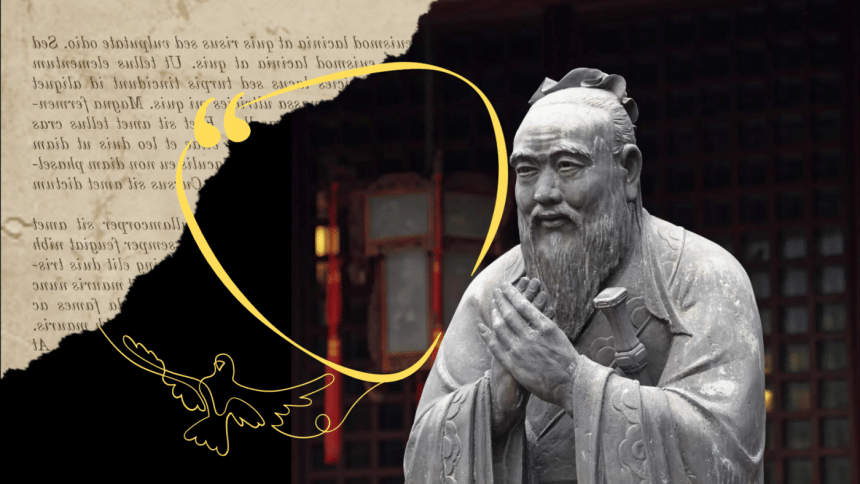Forgive, forget, and find peace: 5 timeless lessons from Confucius

Confucius was a famous teacher and philosopher. His ideas have not only influenced the people of China, his birthplace, but people all over the world were and still are inspired by his words.
Here are 5 things you can learn from the sayings of Confucius.
"Before you embark on a journey of revenge, dig two graves."
We often find ourselves planning to seek revenge on someone who has hurt us or wronged us in some way. Think twice before you do that as it may come back to bite you. While the thought of revenge may seem satisfying, according to this famous quote by Confucius, more often than not, your negative actions toward someone else will come back to you and cause your downfall as well.
So, the next time you think of revenge, remind yourself what the famous philosopher said and maybe that will stop you from harming someone in the name of revenge and, in turn, will stop you from harming yourself.
"To be wronged is nothing unless you continue to remember it."
We have all heard the phrase "forgive and forget". It can be hard to forgive someone's wrongdoings let alone forget them and we tend to hold grudges against them, constantly going back to their actions. However, just choosing to let go of what happened will help us make peace with others.
Reliving someone else's mistakes towards us mostly affects our own peace of mind, so, as Confucius teaches us, it is best to let it go and move on.
"He who wished to secure the good of others has already secured his own."
We were all taught to be kind to others in school, but this teaching also has purpose. According to the wisdom of Confucius, being good to others and having positive intentions for the people around us is not just good for them but also for us. If we do not cause any harm to others, they will have no reason to cause harm to us. Granted, others may not have the same energy, but if your intentions are pure, the chances are nothing bad will come your way either.
"Life is really simple, but we insist on making it complicated."
We frequently seem to find ourselves in situations that seem complicated and our thoughts make it more complex than it really is. Confucius teaches us that if we look at things in a simpler way, life can be much easier. It is important to take a step back and think things through in a more straightforward manner, which will make life a lot less complicated.
"The happiness of your life depends upon the quality of your thoughts."
Manifesting positive energy can often bring back positivity in our lives. That is exactly what Confucius has preached as well. If we think of things in a negative way, more often than not, things will turn out negative. A positive mindset and approach to life will make your life much easier and definitely much happier as your positive thoughts will reflect on your life as well. Even when things do not go your way, take a second to think about what Confucius said.

 For all latest news, follow The Daily Star's Google News channel.
For all latest news, follow The Daily Star's Google News channel. 








Comments